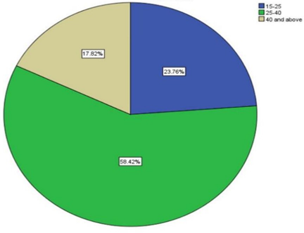Abstract
Proper and regular hand hygiene can reduce the spread of infection in the family of children raised at home. Alcohol-based hand disinfectants usually eliminate viruses associated with systemic infections like respiratory and gastrointestinal infections. The study aimed to investigate a multicultural factor that focused on the use of alcohol-based hand sanitizers to reduce the transmission of diseases at home and further education in hand hygiene. The study was conducted to raise awareness among the general public about the importance of hand washing to prevent the spread of the disease. The survey was conducted among the people in Chennai using a standard questionnaire. The sampling method in the present study was a convenient sampling method. The minimum bias for sampling is done based on selection criteria. Internal justification is a group of pairs, which can normalize the pattern with similar external credibility and exposure. Data is collected and aggregated. The results of this study relate to individual behavior and perception of hand washing. However, the commitment to hand washing is low and needs to be increased. Although self-reporting has increased in the community with hand washing in the community, it is suspected that there is still a risk of developing the disease.
Full text article
Authors

This work is licensed under a Creative Commons Attribution-NonCommercial-NoDerivatives 4.0 International License.

